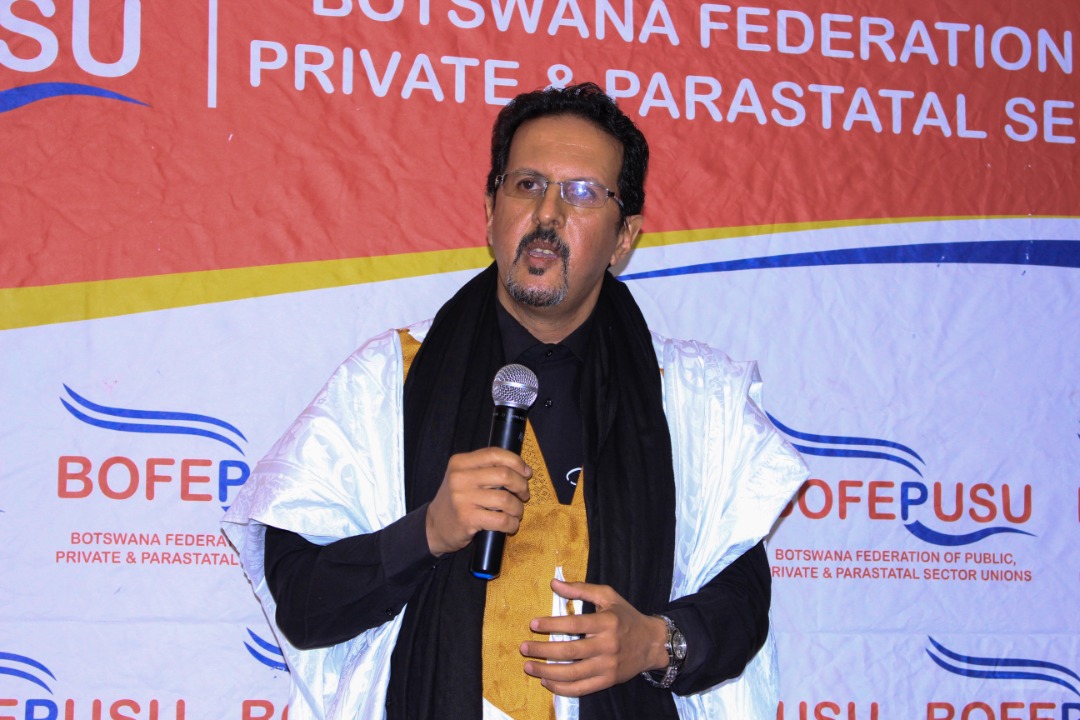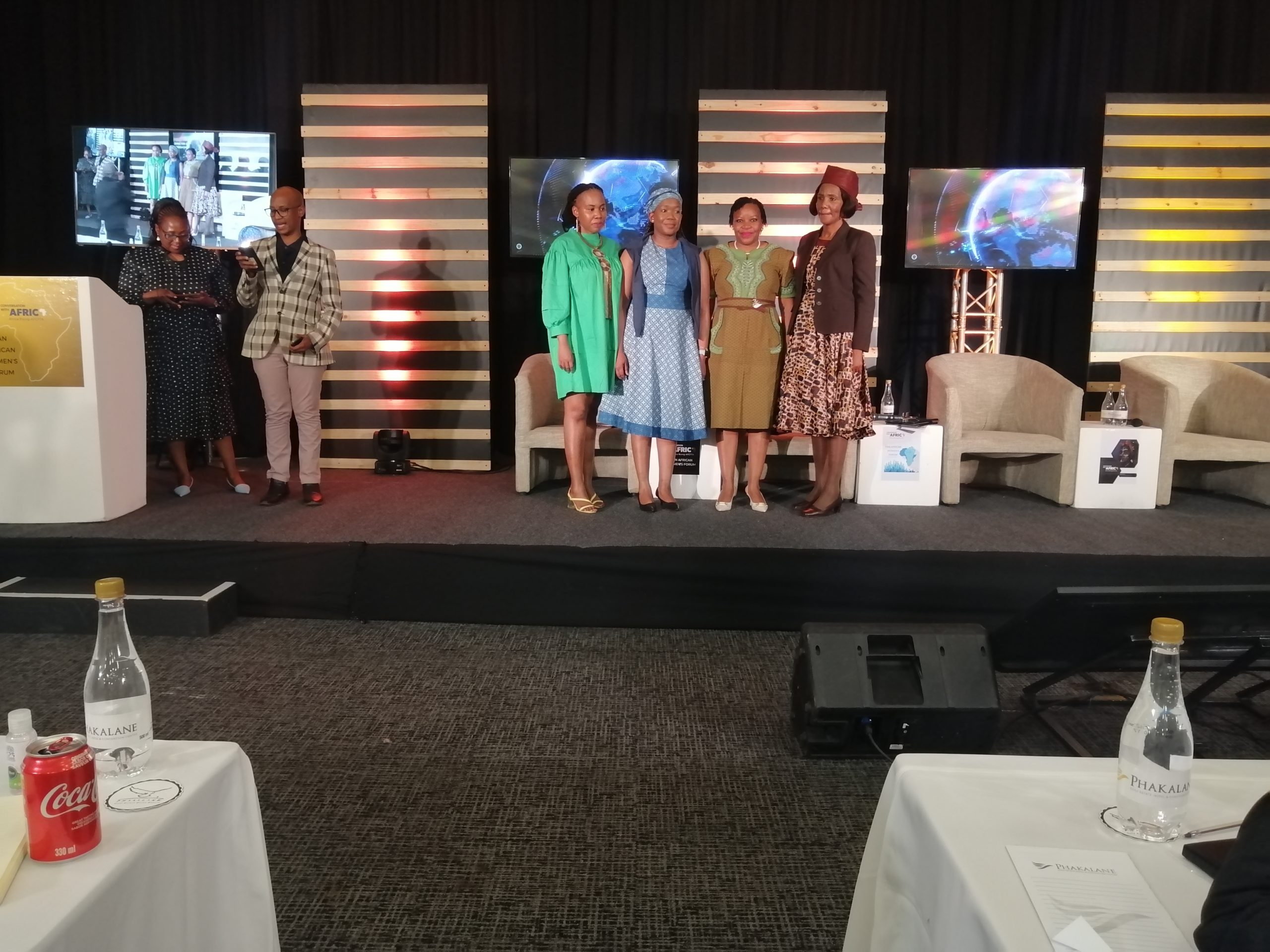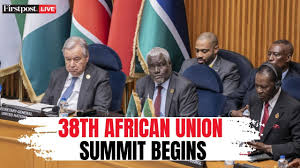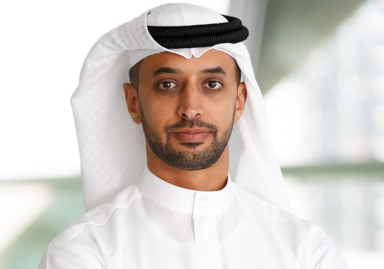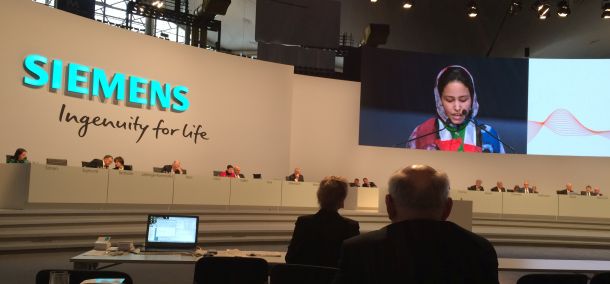
A-Saharawi-refugee-at-the-SIEMENS-Annual-General-Meeting-asking-about-the-countries-involvement-in-Western-Sahara-photo-credit-Western-Sahara-Resource-Watch-On-31-January-2018.jpg
Vitalio Angula
In recent years, there have been growing calls regarding supply chain due-diligence.
This, in order to ensure that corporations exercise due care and diligence in guaranteeing that the goods and services they procure are conflict free, adhere to ethical standards and are sourced legally.

The precursor to the growing field of supply chain due-diligence can be found in the Kimberly Process which sought to reduce the flow in conflict diamonds emanating from Sierra Leone and destined for foreign markets.
Western Sahara is regarded as Africa’s last Colony and has been under illegal occupation by its northern neighbor, the Kingdom of Morocco since 1976.
The International Court of Justice (ICJ), the United Nations (UN) and the African Union (AU), all hold similar positions on Western Sahara -that it is a non-self-governing territory which is under illegal occupation.
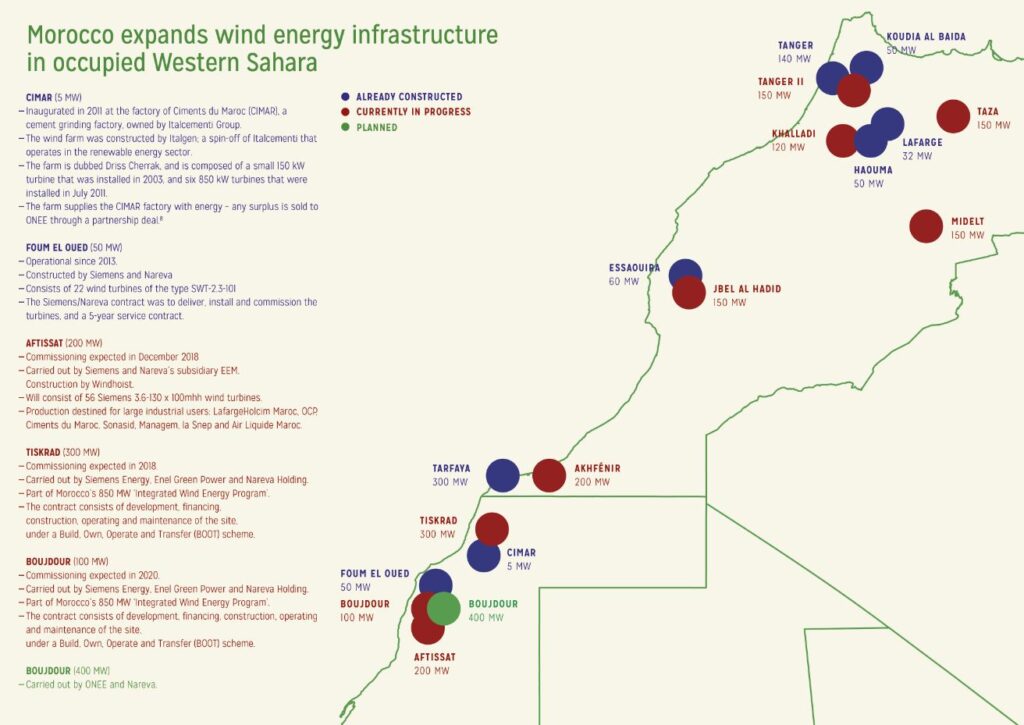
Western Sahara Resource Watch (WSRW) is a Non-Governmental Organisation (NGO) that works in solidarity with the people of Western Sahara in highlighting the illegal occupation of the desert land by its northerly neighbor and working to stop the exploitation of Western Sahara’s natural resources by the occupier, Morocco.
“Rooted in international law, and supported by key rulings of the Court of Justice of the European Union and legal opinions of the United Nations and the African Union, WSRW argues that business operations in the non-self-governing territory can only be considered legally, politically and ethically defensible if the Saharawi people have consented to them”, and this is where the dealings of German Energy giant SIEMENS come to the fore.
Established in 1847, the company, SIEMENS, has come under scrutiny in the German Bundestag (Parliament) with parliamentarians demanding that the Euro 15 billion subsidies the company received from the German government should exclude Siemens Green Energy projects in Western Sahara.
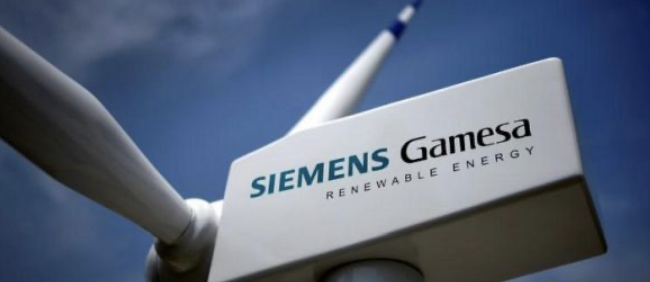
On the 15 November 2023, German Member of Parliament Ali Abaas Yahna AL Dailami asked the German Secretary of State Udo Phillip a question regarding Siemens activities in Western Sahara.
“Have the activities of Siemens in Western Sahara occupied by Morocco, been addressed in the negotiations for the granting of state subsidies to the company to the tune of Euro 15 Billion which last for months according to the minister of the economy Dr. Robert Habeck, if so, what are the results and will the German government condition the granting of these subsidies on the cessation of trade in the occupied territories which violates several verdicts of the European Court of Justice”, Dailami asked the German Secretary of State.
Udo Phillip, German Secretary of State responded by stating that the German Federal Government had been in contact with Siemens energy, Siemens and private banks to clarify how the federal government could help Siemens Energy provide it with certain guarantees that German taxpayers’ money will not be used to advance Moroccan investments in Western Sahara.
“In the negotiations so far, it was mainly a question of asserting the need to respect certain guarantees to access subsidies. Following the negotiations, we will ensure that the credits granted to the company will exclude projects in Western Sahara occupied by Morocco.
“Furthermore, according to the line held by the Federal government, the European Union and the United Nations, the status of Western Sahara is to be determined.
“This is subject of a process carried out under the aegis of the United Nations. The Federal Government will therefore not support any project in Western Sahara”, Phillip responded.
Six years ago South Africa made international headlines when the country refused a ship transporting phosphate from Western Sahara destined to New Zealand to dock at its harbor.
Currently investments in Green Energy have been a major cause for concern raising issues of supply-chain due diligence and respect for human rights.
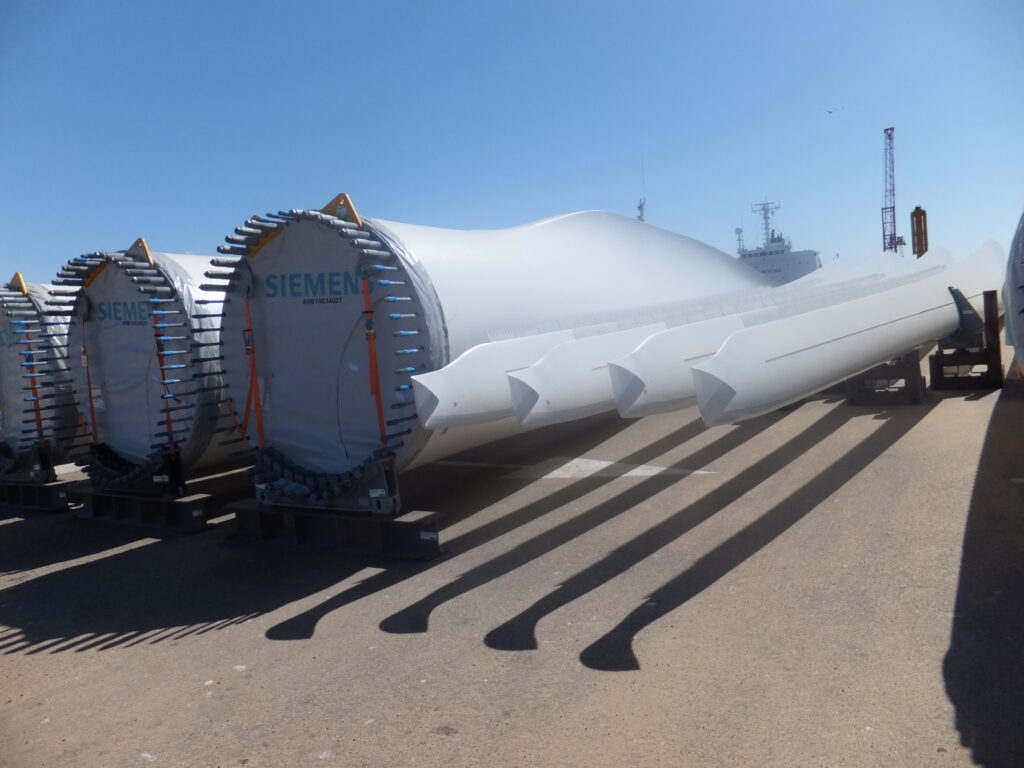
Giant energy multi-national Siemens is supplying wind-turbines for energy projects belonging to the King of Morocco in occupied Western Sahara.
At the Southern African Development Community Solidarity Conference (SADC) on Western Sahara in 2018, the development community called for an end to the illegal exploration and exploitation of the natural resources of Western Sahara in the illegally occupied territory and the discouragement of the involvement of foreign companies in such activities.
In the same vain, as recently as 2017, the European Court of Justice ruled that Morocco had no sovereignty over Western Sahara and that any agreement the EU has with Morocco cannot include resources emanating from Western Sahara, a ruling that morocco refuses to acknowledge or enforce.
This begs the question!
Will Siemens adhere to the principles of international law and the Court of Justice of the European Union that forbids trade in certain resources from the occupied territories of Western Sahara on the basis that it is illegally occupied by Morocco or will the energy giant Siemens continue to be enabler of settler colonization in Western Sahara?
Currently Morocco’s Green Energy projects in Western Sahara are not conflict free, do not adhere to ethical standards and are not sourced legally.
In Sierra Leone it was the diamonds.
In the DRC it is the cobalt.
In Sudan it is the oil.
In Western Sahara it is the phosphate, fisheries resources and lately, Green Energy.
Principles of Supply Chain Due Diligence demand that Siemens re-evaluate its enabling of settler colonialism in Western Sahara.
- Vitalio Angula is a socio-political commentator and independent columnist






